Brian Wheeler
Political reporter

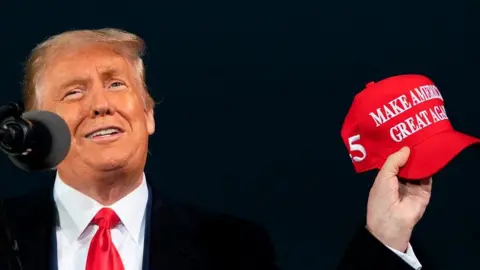 Getty Images
Getty Images
Donald Trump did not invent the phrase but he made it his own
Every political campaign needs a good slogan – a snappy phrase to energise voters and skewer opponents.
Some slogans resonate beyond polling day, capturing a national mood or a moment in time - Barack Obama's "Yes, We Can", perhaps, or the Brexit campaign's "Take Back Control".
Others are dead on arrival – clunky, overcomplicated and unmemorable, capturing nothing much beyond the desperation of the committee that devised them.
Now political strategist and pollster Chris Bruni-Lowe claims to have cracked the formula for creating the perfect slogan.
He has analysed 20,000 campaign messages from around the world to come up with eight words that, he says, have been proven to resonate with voters of all political persuasions.
They are: people, better, democracy, new, time, strong, change, together.
He is quick to stress, in his new book Eight Words That Changed The World, that they are not a guarantee of electoral success. They will not help if the candidate using them is an uncharismatic dud, with unpopular policies.
And they can not just be combined in a random order – Strong New Time or People Better Change – to produce results.
They are, rather, "emotional shortcuts", or building blocks for slogan-writers that work across cultures and even languages, Bruni-Lowe says.
"Voters instinctively know what 'people', 'better' or 'together' promise without needing a policy paper.
"They are also remarkably elastic: a socialist in South Africa, a conservative in Luxembourg and a populist in Hungary can all bend the same word to their own story."
The most commonly used word in winning campaigns is "people", according to Bruni- Lowe's analysis - he cites Bill Clinton's 1992 "Putting People First" and "For People, For a Change" as examples of slogans that made a real difference, allowing the presidential candidate to play to his strengths as a "people person" in contrast to his stiff opponent George HW Bush.
But isn't there a danger that following this formula will result in bland, catch-all slogans?

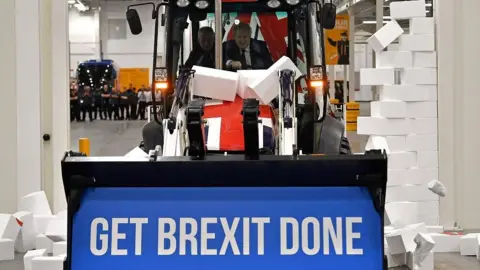 Getty Images
Getty Images
Subtlety wasn't part of the Boris Johnson game plan at the 2019 election
Some of the most effective ones - such as Boris Johnson's 2019 general election slogan "Get Brexit Done" - were devised with a single purpose in mind.
(As were some of the worst, such as "Vote for Al Smith and he'll make your wet dreams come true". The anti-prohibitionist Smith - who wanted to legalise alcohol sales - failed to win the 1928 US presidency.)
Bruni-Lowe argues that "bespoke" slogans like "Get Brexit Done" are the exceptions that prove his rule.
"Bespoke slogans explode when one unresolved grievance crowds out every other issue and a decisive-looking outsider offers a three-word cure; they're brilliant for that election, but useless the moment the storm moves on."
Bruni-Lowe's own contributions to the genre include "Change Politics For Good", for Nigel Farage's Brexit Party, and "It's Time", for Jakov Milatovic's successful 2023 bid to be president of Montenegro on a campaign to get his country to join the EU.
He devotes a chapter of his book to "Make America Great Again" (MAGA), another slogan that does not conform to his rules.
Donald Trump claims to have dreamed it up in 2012, sitting at his desk on the 26th floor of Trump Tower, but "great again" as a political rallying cry dates back more than a century, according to Bruni-Lowe.
In 1950, the Conservative Party unsuccessfully fought a general election on the promise to "Make Britain Great Again". Ronald Reagan had more success in 1980 when he used the slogan "Let's Make America Great Again".
Whether Trump knew any of this when he claimed to have invented the phrase is, in the end, irrelevant, argues Bruni-Lowe - he managed to turn MAGA into brand, and a dividing line that, for better or worse, has reshaped American politics.
He even registering it with US Trademark Office, for a fee of $325, to prevent other politicians using it.

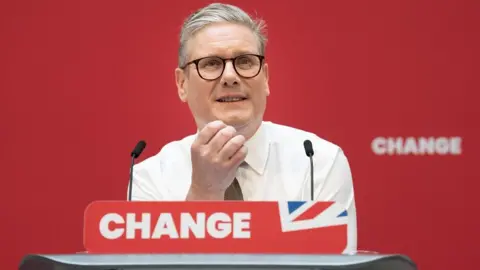 Getty Images
Getty Images
Labour's general election slogan did not waste words
In the UK, the Brexit campaign's "Take Back Control" is probably the most memorable slogan of recent years.
It was part of a trend for shorter, snappier slogans - with the three word formula briefly being seen as a key to success.
Last year, Labour's landslide winning general election campaign boiled its message down to a single word - "Change".
The Conservative slogan - in case you have forgotten it - was "Clear Plan, Bold Action, Secure Future".
But soon there may not be any slogans at all, in the traditional sense.
Artificial Intelligence is increasingly being used to craft messages tailored to the concerns of individual voters, delivered through social media and constantly refined to have the maximum impact.
Bruni-Lowe also highlights a growing interest in neuroscience, and the use of tools such as functional magnetic resonance imaging, which measures brain activity by detecting changes in blood flow.
This allows researchers to study how people respond neurologically to political stimuli such as campaign ads, speeches and election slogans.

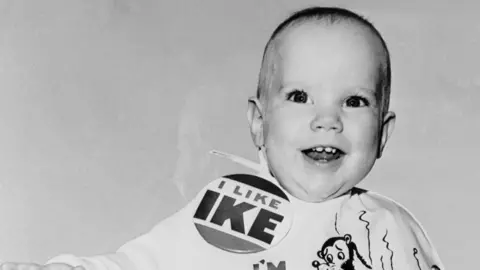 Getty Images
Getty Images
Dwight Eisenhower's slogan was aimed at the broadest possible audience
Such trends could fundamentally change democratic politics, reshaping elected representatives' relationship with voters.
They could also rob us of some irritatingly catchy election slogans.
Few fit that bill more than one of the first ever political ads shown on US television, in 1952.
The 60 second spot was aimed at putting a human face on the Republican candidate, the former supreme commander of allied forces in Europe Dwight E Eisenhower, who was widely known by his nickname Ike.
Featuring an insanely infectious jingle by composer Irving Berlin, "I like Ike" was a Disney cartoon aimed at the broadest possible audience,
It was so successful his campaign team saw no need to change the formula for his re-election bid, adding just one word, before, presumably, heading off for an early lunch.
"I still like Ike" doesn't fit Chris Bruni-Lowe's formula - but it did prove to be another winner.


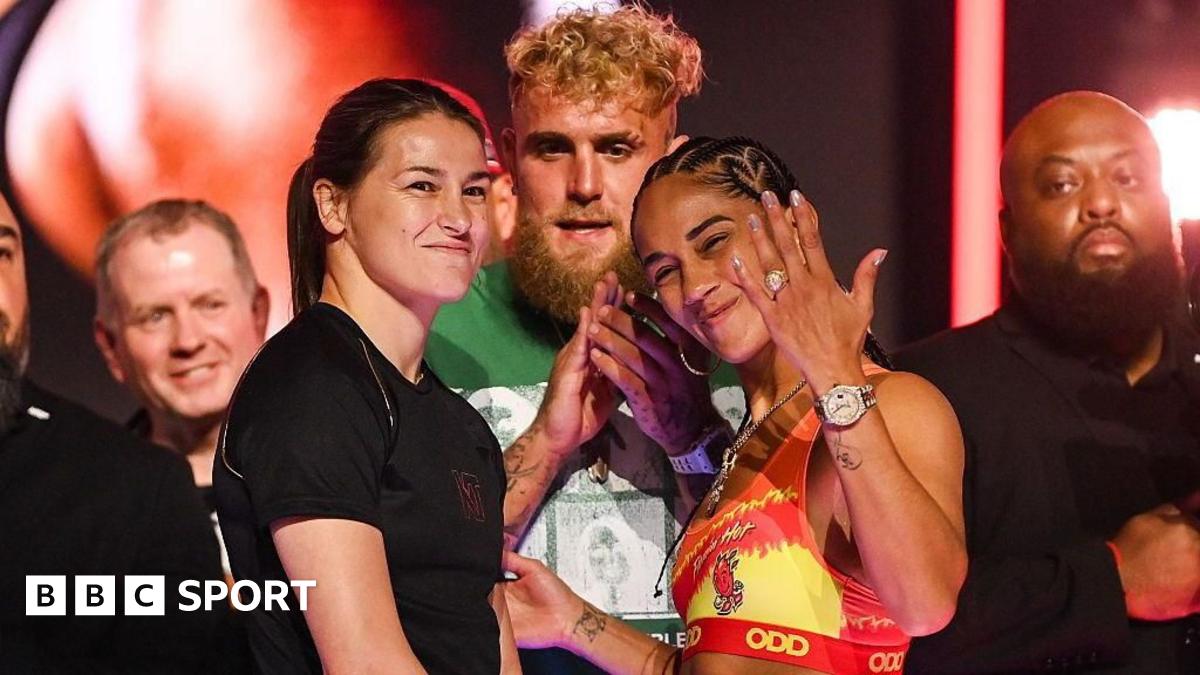
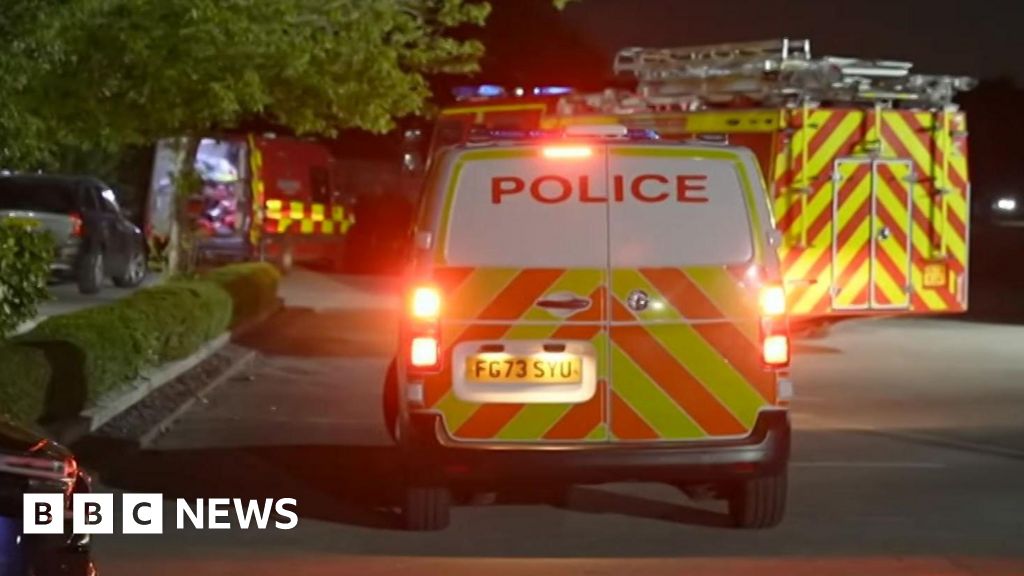


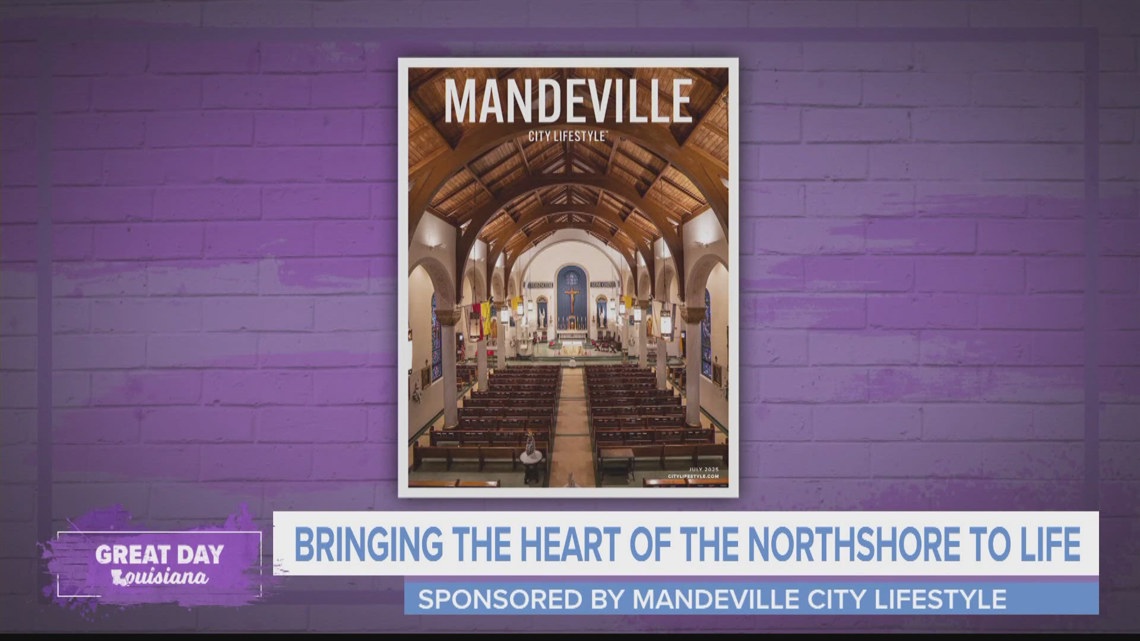

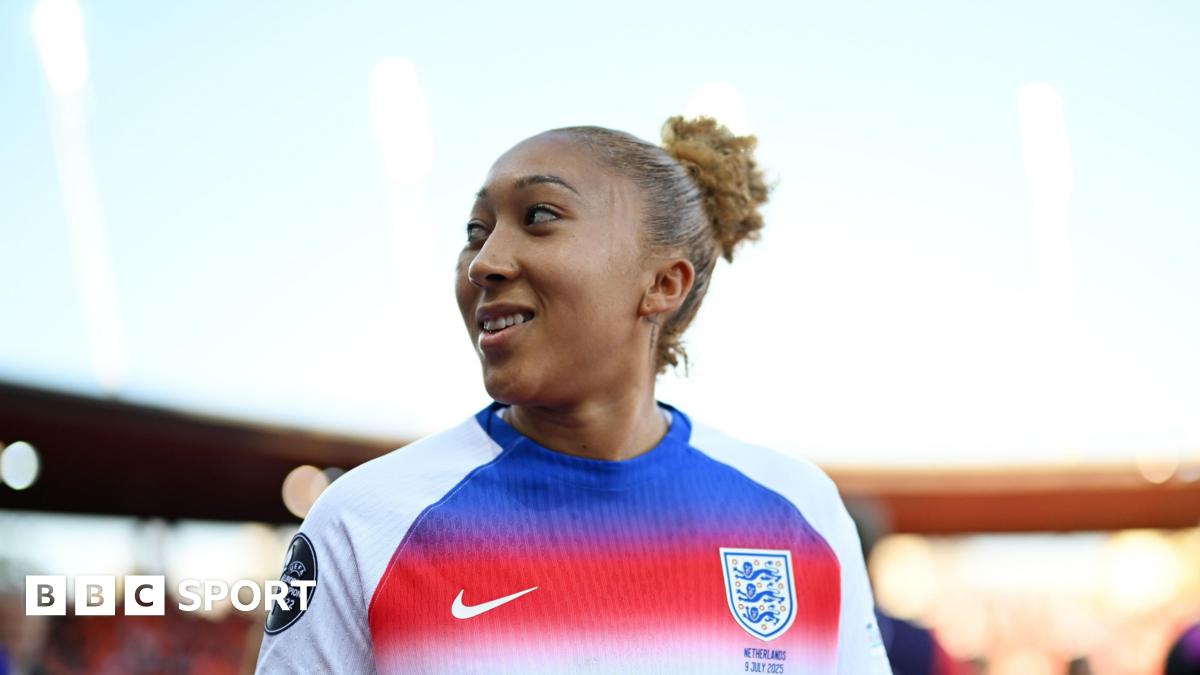
 English (US) ·
English (US) ·